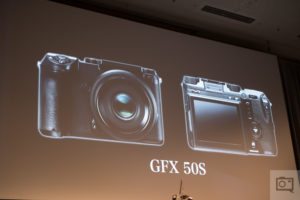
The iPhone 17 Pro and Pro Max come in three colors. Image: Apple September is already upon us. In much of the world, that means kids are back to school, fall colors are on the horizon, and it’s time for Apple to unveil its newest iPhones.
Apple delivered, announcing the iPhone 17, iPhone 17 Pro and Pro Max, and the new iPhone Air, an extra-thin model for minimalists.
While all models received camera updates, photography aficionados will be most interested in the iPhone 17 Pro series, Apple’s flagship models with the company’s best cameras. Here, we compare the iPhone 17 Pro and Pro Max to the iPhone 16 Pro series to see what’s changed.
Going all-in on 48MP cameras
Image: Apple
Like prior Pro models, the iPhone 17 Pro series uses a triple camera array, with main, ultra-wide, and telephoto modules. The most obvious visual change is a wider camera bump: Apple
The headline news is that all three rear cameras now use 48MP "Fusion" sensors. In Apple parlance, a Fusion sensor is a Quad Bayer design that computationally fuses pixel-binned data with permple, Google uses similar technology on its Pixel phones.
iPhone 17 Pro / Pro Max
iPhone 16 Pro / Pro Max
Main camera
24mm (equiv. ) F1. 78 lens
24mm (equiv. ) F1. 78 lens
Main camera sensor
48MP sensor
Type 1/1. 28
(71. 5mm
48MP sensor
Type 1/1. 28
(71. 5mm
Ultra-wide camera
13mm (equiv. ) F2. 2 lens
13mm (equiv. ) F2. 2 lens
Ultra-wide camera sensor
48MP sensor
Type 1/2. 55
(23. 5mm
48MP sensor
Type 1/2. 55
(23. 5mm
Telephoto camera
100mm (equiv. ) F2. 8 lens
120mm (equiv. ) F2. 8 lens
Telephoto camera sensor
48MP sensor
Type 1/2. 55
(23. 5mm
12MP sensor
Type 1/3. 2
(15. 3mm
Front camera
F1. 9 lens*
F1. 9 lens*
Front camera sensor
18MP Center Stage front camera**
(square multi-aspect ratio sensor)
12MP TrueDepth camera
Video features
ProRes RAW
Genlock support
Dolby Vision HDR
4K/120p video
ProRes Log
ACES color
Dolby Vision HDR
4K/120p video
ProRes Log
ACES color
*Focal length not specified
**Apple claims the sensor is "almost twice as large" as the front camera sensors found in iPhone 16 series models
The big hardware upgrade is the new telephoto camera, which features a 4x / 100mm (equiv. ) F2. 8 lens. This is a notable change from the 5x / 120mm (equiv. ) F2. 8 lens on the iPhone 16 Pro.
At first glance, this might look like a downgrade, but one criticism some users leveled at the previous model was that the gap between the main and telephoto cameras on the iPhone 16 Pro was too large. As a result, mid
"The big hardware upgrade is the new telephoto camera. "
Equally important, the new telephoto camera gets a significant sensor upgrade: a 48MP sensor that’s 56% larger than the 12MP telephoto sensor in the iPhone 16 Pro. This should deliver better image quality at the camera's native focal length. It also offers a new 8x "telephoto" capability (200mm equiv. ), but it's essentially a virtual camera that uses the central 12MP resolution of the sensor, with the caveat that those 12 million photosites are arranged behind a Quad Bayer filter array, and won't necessarily deliver the same level of detail as a standard 12MP Bayer sensor.
The iPhone 17 Pro's telephoto camera module gains a new 48MP sensor that's more than 50% larger than the 12MP sensor in the iPhone 16 Pro series. Note that the 8x telephoto lens in the image above is essentially a virtual lens that uses the central 12MP of the telephoto sensor, with the caveat that those photosites are behind an oversampled Quad Bayer filter, and won't necessarily deliver the same detail as a standard 12MP Bayer sensor.
Image: Apple
The other two cameras are unchanged: a 24mm (equiv. ) F1. 78 main camera and a 13mm (equiv. ) F2. 2 ultra
Apple says the imaging pipeline has also been improved for better results at all zoom ranges and light levels, and uses machine learning models for demosaicing to preserve natural detail better, reduce noise, and improve color, especially in low light. We haven’t had a chance to verify these claims independently
Video: more "pro" than ever
The iPhone 17 Pro series gains ProRes RAW to an already impressive set of video features.
Image: Apple
Apple has a track record of integrating advanced video features into flagship iPhones, which have been used for everything from your cat’s Instagram channel to Hollywood motion pictures. The iPhone 17 Pro series has two more: ProRes RAW recording and Genlock.
"Apple has a track record of integrating advanced video features into flagship iPhones. "
ProRes Log debuted on iPhone 15 Pro as a high-quality, editing-friendly codec with wide latitude for color grading. ProRes RAW goes further, delivering Raw video with even greater flexibility in post, including the ability to change white balance and "ISO" adjustments (in effect, metadata adjustments that control how linear data from the sensor is displayed).
ProRes RAW capture is supported by Apple’s Final Cut Camera and Blackmagic Camera, with APIs coming for other developers.
Genlock synchronization is supported by the Blackmagic Camera ProDock.
Image: Apple
Genlock is a synchronization tool that locks cameras at the frame level, which is critical for multibullet time. " It’s supported when using the new Blackmagic Camera ProDock, and as with ProRes RAW, Apple is providing APIs to allow broader developer support. These additions join Dolby Vision HDR, 4K/120p, ProRes Log, and ACES, already available on recent Pro models.
Front camera: it’s hip to be square
The iPhone 17 series' new front-facing camera.
Image: Apple
Huey Lewis and the News knew it was hip to be square in the ’80s; now Apple joins the party. Across the iPhone 17 lineup (and iPhone Air), there’s a new 18MP front module built around a square multi instead of the prior 4:3 aspect sensor.
Apple calls it the Center Stage front camera, and while not providing exact specifications, it says the sensor is almost twice the size of previous modules. The square sensor means there’s no need to rotate the phone to capture landscape or vertical photos and videos, as the camera selectively reads the appropriate region of the sensor regardless of phone position. Apple claims it also allows for improved image stabilization when shooting video.
The Center Stage camera uses a square sensor to capture photos and videos in either horizontal or vertical orientation.
Image: Apple
New on-screen controls allow you to switch between landscape and portrait orientation with a tap. Apple’s Center Stage AI can automatically adjust the field of view or rotate the frame for group shots.
Although Apple boasts about the increased size of the sensor, keep in mind that you’re not benefitting from all that extra surface area in each photo, because it operates in a multi-aspect fashion, there will always be some letterboxed areas of the sensor not being captured.
. dpreview.com2025-9-11 23:02















